
"When Doves Cry" is a song by American musician Prince, and the lead single from his sixth studio album Purple Rain. According to the DVD commentary of the film Purple Rain (1984), Prince was asked by director Albert Magnoli to write a song to match the theme of a particular segment of the film that involved intermingled parental difficulties and a love affair. The next morning, Prince had composed two songs, one of which was "When Doves Cry". According to Prince's biographer Per Nilsen, the song was inspired by his relationship with Vanity 6 member Susan Moonsie.
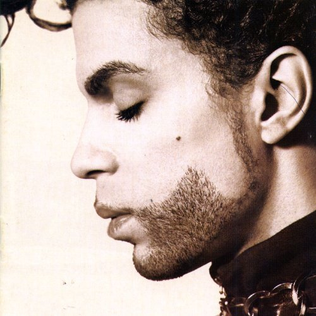
The Hits/The B-Sides is a box set by American recording artist Prince. It was released on September 10, 1993, by Paisley Park Records and Warner Bros. Records. The album is a comprehensive three-disc set consisting of many of his hit singles and fan favorites.
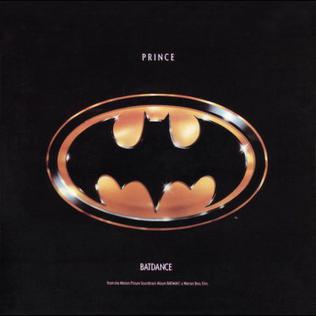
"Batdance" is a song by American musician Prince, from the 1989 Batman soundtrack. Helped by the film's popularity, the song reached number one in the US, becoming Prince's fourth American number-one single and served as his first number-one hit since "Kiss" in 1986.
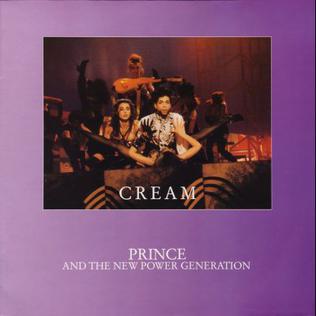
"Cream" is a song by American singer-songwriter Prince and his backing band the New Power Generation, released in September 1991 by Paisley Park and Warner as the second single from Prince's 13th studio album, Diamonds and Pearls (1991). In a 2004 MTV special, Prince joked that he wrote the song while looking at himself in the mirror. "Cream" became Prince's fifth and last number-one single on the US Billboard Hot 100, staying at the top for two weeks. The song entered the top 10 in 15 other countries worldwide, peaking within the top three in Australia, Canada, Norway, and Switzerland. Its music video was directed by Rebecca Blake.

"Diamonds and Pearls" is the title track of American musician Prince and The New Power Generation's 1991 album and was released as a single in November 1991. The song is an upbeat ballad, given a rock edge with guitar and heavy drumming. It also features the vocals of NPG member Rosie Gaines. The ballad is an expression of love and not lust, as is the theme on some of the other singles from the album. It was a top 10 hit, reaching number three in the US and the top spot on the R&B chart. The pearls in the accompanying music video come from Connie Parente, a Los Angeles jewelry collector and designer.
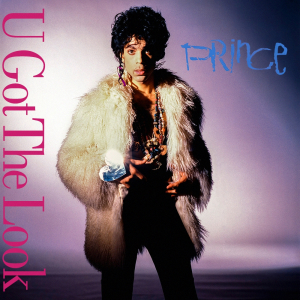
"U Got the Look" is a song by American musician Prince. It opens the second disc of Prince's double album Sign o' the Times (1987), and became the album's runner-up chart single. Musically, the song is a standard 12-bar rock song with emphasis on the contrast between heavy drum beats by a Linn LM-1 drum machine and Sheila E.'s live percussion, and a vastly distorted almost completely saturated guitar sound. Although not credited on the single release, the song also features Scottish recording artist Sheena Easton. Prince sings in his sped-up "Camille" voice, although the song was not intended for the Camille album. The lyrics recite the familiar "boy versus girl in the World Series of love" line.

"Thieves in the Temple" is a song by American musician Prince from the 1990 soundtrack album Graffiti Bridge. Added at the last minute, it was the final song recorded for the album. "Thieves in the Temple" topped the US R&B chart and became a number six hit in the US, and a number seven hit in the UK. The single also peaked at number nine on the dance chart.

"Money Don't Matter 2 Night" is a song by American musician Prince and the New Power Generation from their 1991 album, Diamonds and Pearls. The song was released in March 1992 by Paisley Park and Warner. Co-written with Rosie Gaines, the lyrics deal directly with money, poverty, and greed, and overall, the song is a smooth delivery with layered vocals by Prince. It peaked at number 23 on the US Billboard Hot 100 and number 19 on the UK Singles Chart. The accompanying music video was directed by Spike Lee.
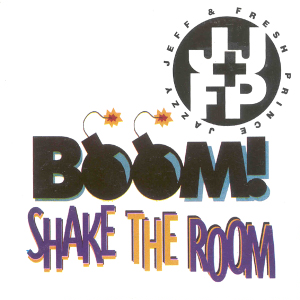
"Boom! Shake the Room" is a song by American hip hop duo DJ Jazzy Jeff & The Fresh Prince. The track samples the 1973 song "Funky Worm" by the Ohio Players. Released on July 16, 1993 by Jive Records, as the second single from the duo's fifth studio album, Code Red (1993), the single peaked at numbers 13 and 12 on the US Billboard Hot 100 and Cash Box Top 100, as well as topping the charts of Australia, Ireland, Spain, and the United Kingdom. In Spain, it was a number-one hit for six weeks. Its music video was directed by American film director Scott Kalvert, featuring the duo performing onstage in front of a live crowd.

"Sexy MF" is a song by American musician Prince and the New Power Generation, released as a single from their 1992 album Love Symbol. The music and most of the lyrics were composed by Prince, while Levi Seacer Jr. came up with the chorus and the song's title. Tony M. also delivers a rap, which he wrote. The song and its refrain "You sexy motherfucker" caused some controversy, and edited versions were produced for radio, the music video and the US version of the album. The song was recorded in Paisley Park's Studio A in December 1991.
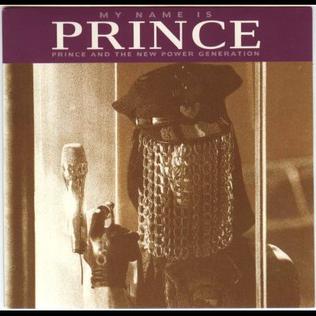
"My Name Is Prince" is a song by American musician Prince and his backing band the New Power Generation, released in September 1992 by Paisley Park and Warner Bros. as the second single from their 1992 Love Symbol album. The song is about Prince himself and his musical prowess. The rap sequence is performed by NPG member Tony M. The intro to the song features vocal samples from Prince's earlier songs "I Wanna Be Your Lover", "Partyup", and "Controversy". Its music video was directed by Parris Patton and featured Kirstie Alley and Lauren Green.

"7" is a song by American musician Prince and the New Power Generation, from their 1992 Love Symbol Album. It was released in late 1992 as the third single from the album, and became the most successful in the United States. It features a sample of the 1967 Lowell Fulson song "Tramp" and is composed of heavy drums and bass in an acoustic style. It has a distinct Middle Eastern style of music, and a Hindu reincarnation theme, and an opera-like chorus which features Prince's multi-tracked vocals. The lyrics have religious and apocalyptic themes. The song is ambiguous and can be interpreted in many ways, as the "7" mentioned in the chorus could be the song referring to the Seven Deadly Sins or the seven Archon of Gnosticism or the seven names of God in the Old Testament. The song received positive reviews and peaked within the top forty of many of its major markets. Its music video was directed by Sotera Tschetter.

"The Morning Papers" is a song by American musician Prince and the New Power Generation from their 1992 album Love Symbol. It was released as the fourth worldwide single from the album in March 1993 by Paisley Park and Warner Bros.; the B-side is "Live 4 Love", a track from Prince's previous album, Diamonds and Pearls (1991). The UK CD single included "Love 2 the 9's" as well, also from Love Symbol. "The Morning Papers" peaked at numbers 44 and 35 on the US Billboard Hot 100 and Cash Box Top 100.
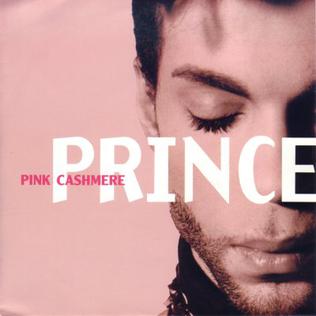
"Pink Cashmere" is a song by American musician Prince, released as a single from his 1993 compilations, The Hits 2 and The Hits/The B-Sides.

"The Most Beautiful Girl in the World" is a song by American musician Prince, released in various forms on the 1994 remixes EP The Beautiful Experience and later on his seventeenth album, The Gold Experience (1995). In his singles chronology, it was his third major release since changing his stage name to an unpronounceable "Love Symbol". In his albums chronology, it along with the EP was his second release after changing his name.

"I Just Called to Say I Love You" is a ballad written, produced, and performed by American R&B singer and songwriter Stevie Wonder. It was a major international hit, and remains Wonder's best-selling single to date, having topped a record 19 charts.

"Betcha by Golly, Wow" is a song written by Thom Bell and Linda Creed, originally titled "Keep Growing Strong" and recorded by American actress and singer Connie Stevens under the Bell label in 1970. Stevens' recording runs two minutes and thirty seconds. The composition later became a hit when it was released by the Philadelphia soul group the Stylistics in 1972 under its better known title, "Betcha by Golly, Wow".
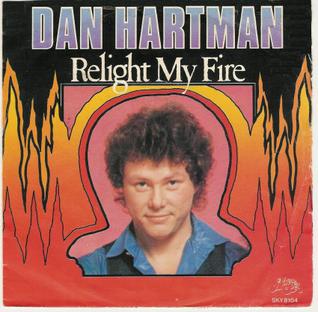
"Relight My Fire" is a disco song written and released by American musician, singer, songwriter, and record producer Dan Hartman as the title track from his 1979 album of the same name. It was also performed by Costa Anadiotis' band Café Society in 1984 and British boy band Take That in 1993, five months before Hartman died.

"Cryin'" is a song by American hard rock band Aerosmith. It was written by Steven Tyler, Joe Perry, and Taylor Rhodes, and released by Geffen Records on June 29, 1993, as the second US single from their 11th studio album, Get a Grip (1993). The single reached numbers 12 and 11 on the US Billboard Hot 100 and Cash Box Top 100, ending the year at number 60 overall. It is one of their most successful hits in Europe, reaching number one in Norway, number three in Iceland, Portugal, and Sweden, and number 17 on the UK Singles Chart. The song went gold in the United States for selling over 500,000 copies. Its music video, directed by Marty Callner, features Alicia Silverstone, Stephen Dorff and Josh Holloway.
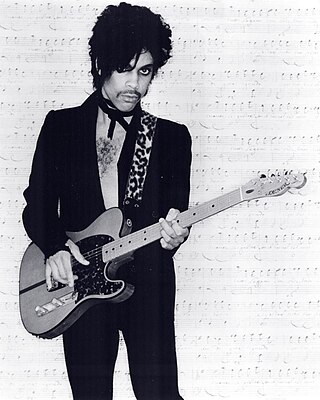
Prince released several hundred songs both under his own name and under pseudonyms and/or pen names, as well as writing songs which have been recorded by other artists. Estimates of the actual number of songs written by Prince range anywhere from 500 to well over 1,000. He has released 117 singles, 41 promotional singles, 24 internet singles, and eight internet downloads.




















